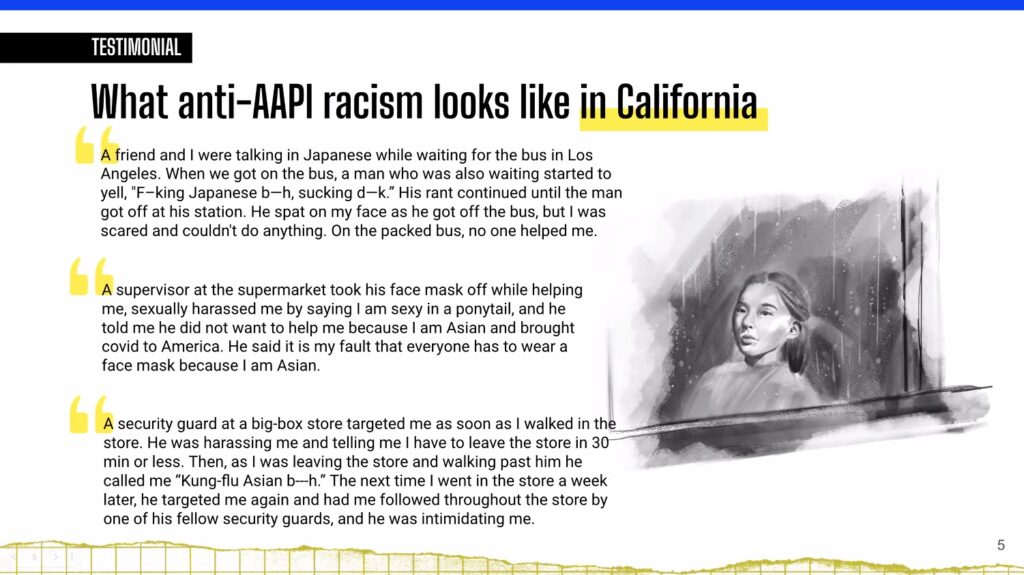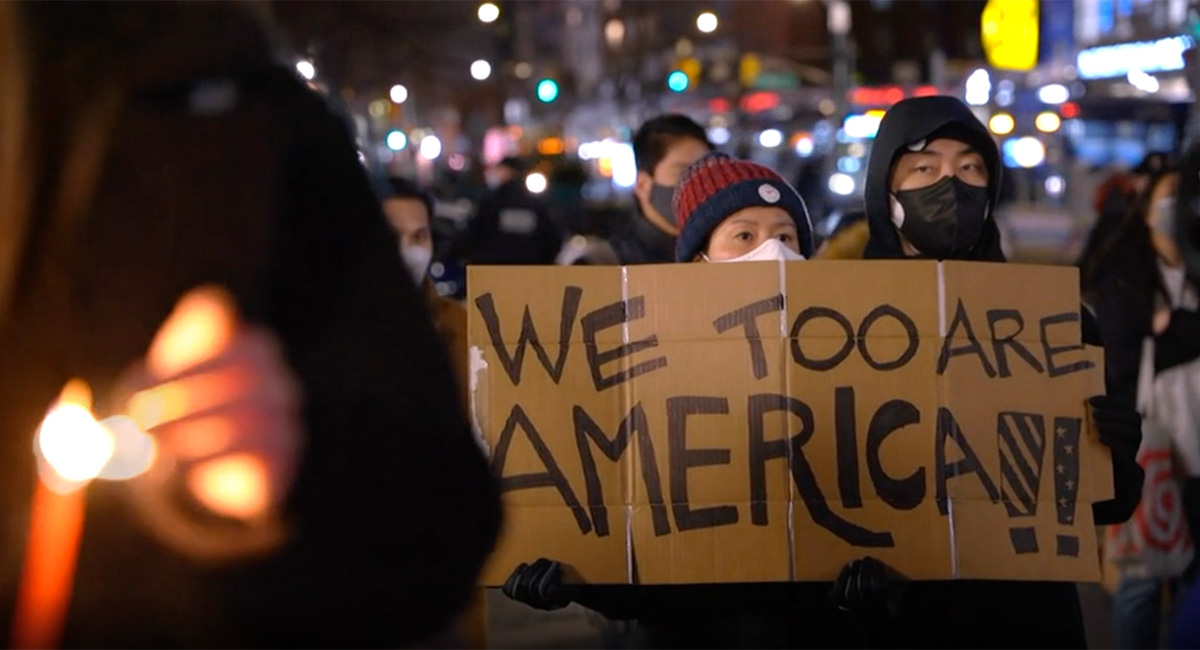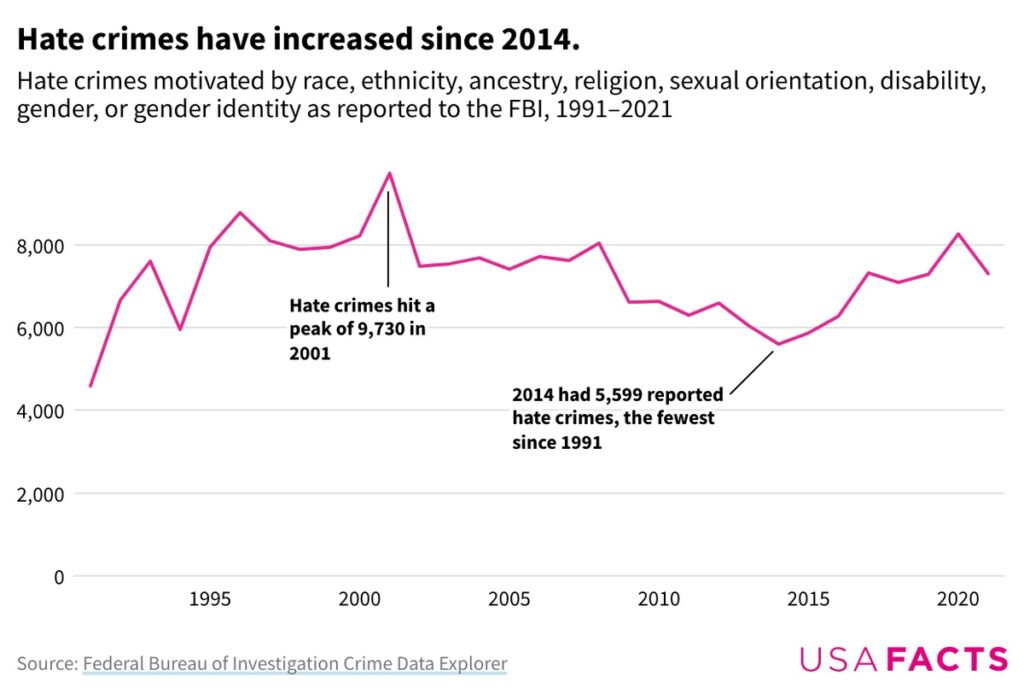Hate crimes and hate-related incidents are on the rise nationwide and they are growing more violent, though prosecutions remain stubbornly low. That was one of the messages delivered during a public forum Wednesday hosted by the California Commission on the State of Hate.
California is no outlier, with data from the Department of Justice showing a near doubling of hate crimes across the state over the last decade.
“Behind each data point is a person who has been targeted for hate and chosen to share their story,” said Candice Cho, Managing Director of Policy and Counsel with the AAPI Equity Alliance, and co-founder of the group Stop AAPI Hate.
Cho noted that many of the more than 11,000 reports collected by Stop AAPI Hate since its launch in 2020 happened in public to people “just going about their daily lives” walking the streets, on public transit or at work.
“He spat on my face as he got off the bus, but I was scared and couldn’t do anything,” read one report submitted to Stop AAPI Hate and shared by Cho. “On the packed bus, no one helped me.”
According to Cho, many of the cases her organization has tracked involve non-criminal acts, like verbal abuse, bullying at school or micro-aggressions in the workplace. But Cho stressed that violent or otherwise, “discrimination is hate,” and that such acts can have severe negative side effects for both the victims and the wider community.
Victims often report feeling depression, fear, and losing a sense of belonging in society, at times shifting work, school, or neighborhoods in response.
“Even if they did nothing wrong, they had to make adjustments in their life,” noted Annie Lee, Managing Director of Policy at Chinese for Affirmative Action, adding that more than a quarter of respondents said these encounters had negatively impacted their personal relationships, suggesting wider societal impacts of hate and discrimination.

Toughening civil rights laws
Lee, Managing Director of Policy with Chinese for Affirmative Action, shared results from a 2022 survey that found half of all Asian American and Pacific Islanders nationwide have experienced discrimination in one form or another but that just 15% reported their encounters.
A majority (52%) said they felt it would make no difference, while 4 in 10 said they did not know where to go to file a report. More than a third reported fearing unwanted attention, while a quarter said they feared reprisals from their attackers.
Of note, 60% of respondents said they wanted to learn more about what their civil rights are and about available resources, many pointing to social media and the ethnic press as their preferred channels. Two thirds also favored new civil rights legislation.
In 2021 California passed the API Equity Budget, funneling $166.5 million into community and frontline groups working to stem the rise in ant-Asian hate. Last year the state passed two bills – AB 1664 and AB 2282 – which aim to better protect religious minorities while toughening penalties for cross burnings or the use of swastikas or nooses as overt hate symbols.
This year Stop AAPI Hate is co-sponsoring the “Public Transit for All” bill (SB 434), which would require public transit agencies across the state to collect survey data as a first step toward ensuring ridership safety.
Together, says Lee, these laws “shift the burden of being safe away from individuals and onto public agencies.”
The Commission on the State of Hate, part of California’s Civil Rights Department, was created to strengthen the state’s efforts to combat the surge in hate crimes and hate incidents and to foster improved relations across its diverse communities.
Wednesday’s public forum was the commission’s first, the intent being to solicit input on recommendations for how to achieve its aims. “The goal of the forum today is to listen,” said Commissioner Cece Feiler, who noted that she is the daughter of Holocaust survivors and immigrants to the US.
Tracking the numbers
Brian Levin directs the Center for the Study of Hate and Extremism at Cal State-San Bernadino and is a veteran when it comes to tracking hate, with close to four decades including playing a key role in the first Supreme Court case to affirm the constitutionality of hate crimes laws in 1993.
“We are hitting this crescendo,” said Levin, as data show the number of hate crimes reaching new records even as they grow more violent.
Pointing to FBI data, which Levin stressed is inherently flawed given the lack of reporting across law enforcement agencies, he noted in 2020 there were 8,263 reported hate crimes – defined as crimes motivated by prejudice on the basis of ethnicity, religion, sexual orientation, or similar grounds – with cases of aggravated assault trending upward.
There was a 12% increase in reported hate crimes in 2021, according to FBI numbers. Data for 2022 is currently unavailable.
States, meanwhile, continue to prosecute barely a fraction of reported hate crimes cases, with Texas prosecuting just five of the “hundreds and hundreds” brought before courts there. California, Levin added, is “pretty decent… and even we’re low.”
Anti-Black, anti-gay and anti-Jewish attacks were among the highest recorded, though Levin says targeted groups vary by city, with Los Angeles seeing more anti-Black attacks and San Francisco, with a larger Asian population, seeing more attacks targeting the API community.
And while Levin notes there have been more attacks between and among minority groups the overwhelming majority are fueled by right-wing extremists and white supremacists.
With PRIDE month here, Levin called the “demonization and genocidal language” now being aimed at the LGBTQ+ community a “warning sign” and he urged greater vigilance and reporting in the runup to PRIDE related events.
“When we see residents of our state being maligned,” he said, “I don’t care what their faith or identity is. The laws of California mandate that we have to protect our civil rights.”
This resource is supported in whole or in part by funding provided by the State of California, administered by the California State Library in partnership with the California Department of Social Services and the California Commission on Asian and Pacific Islander American Affairs as part of the Stop the Hate program. To report a hate incident or hate crime and get support, go to CA vs Hate.






